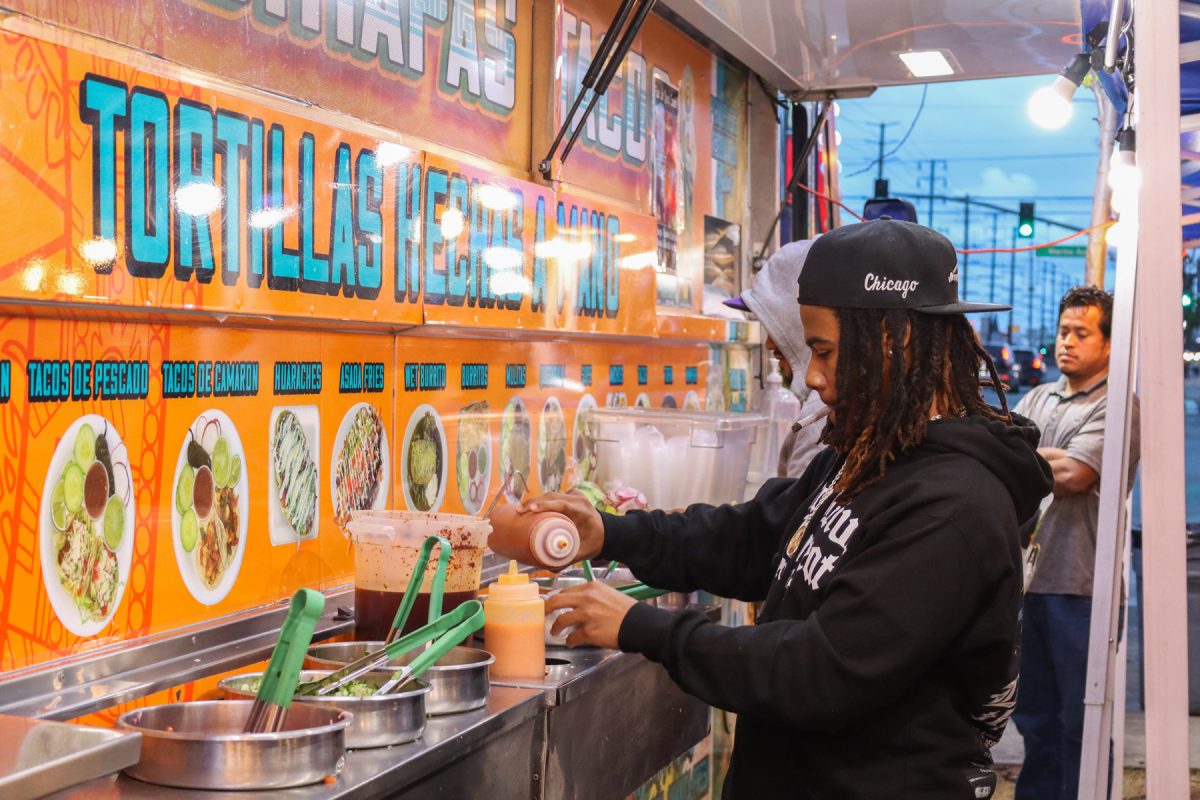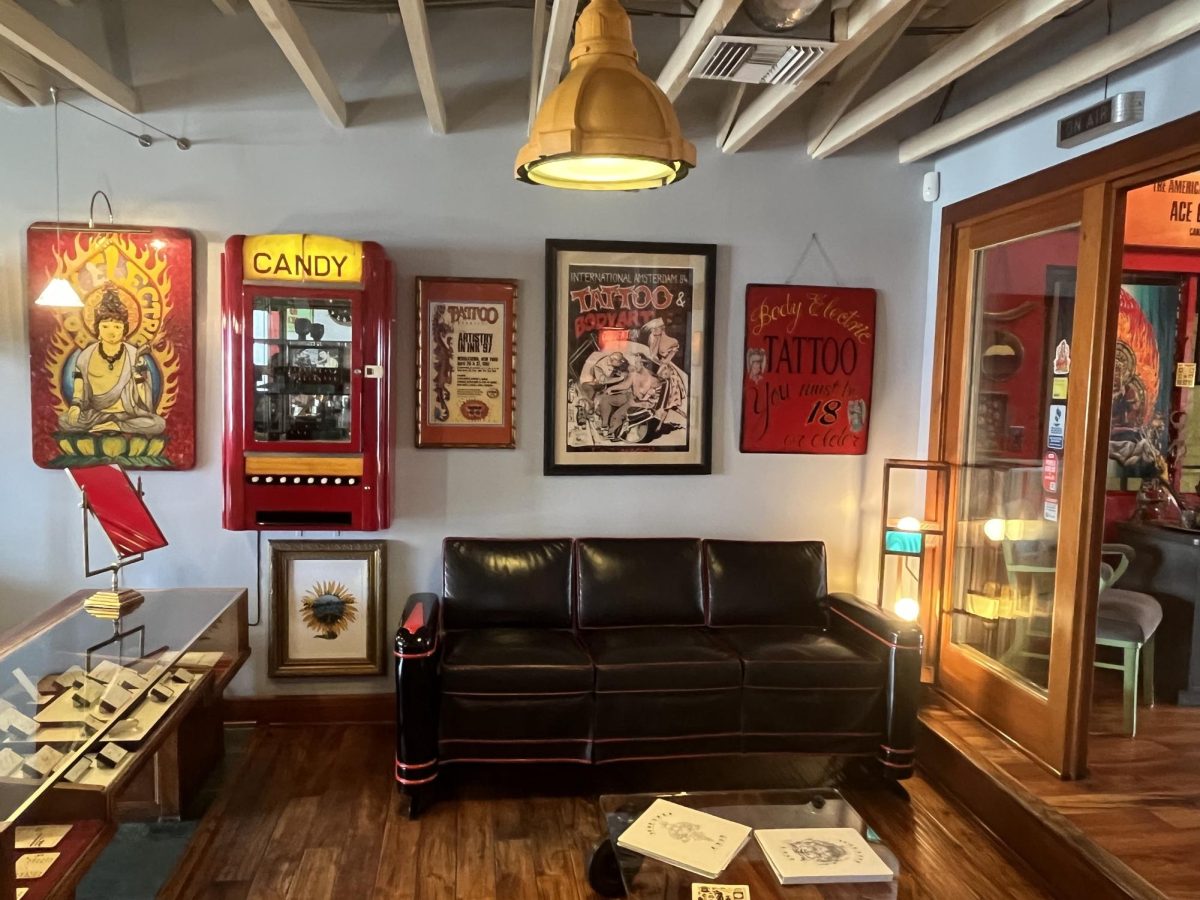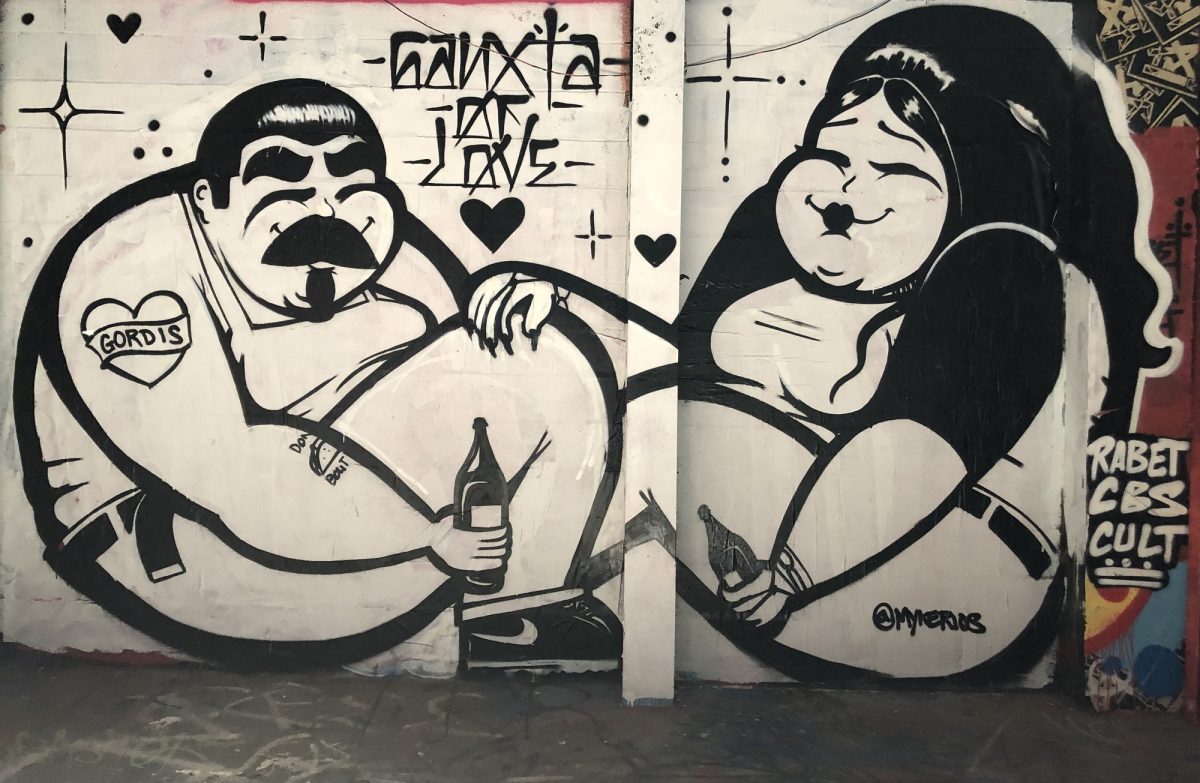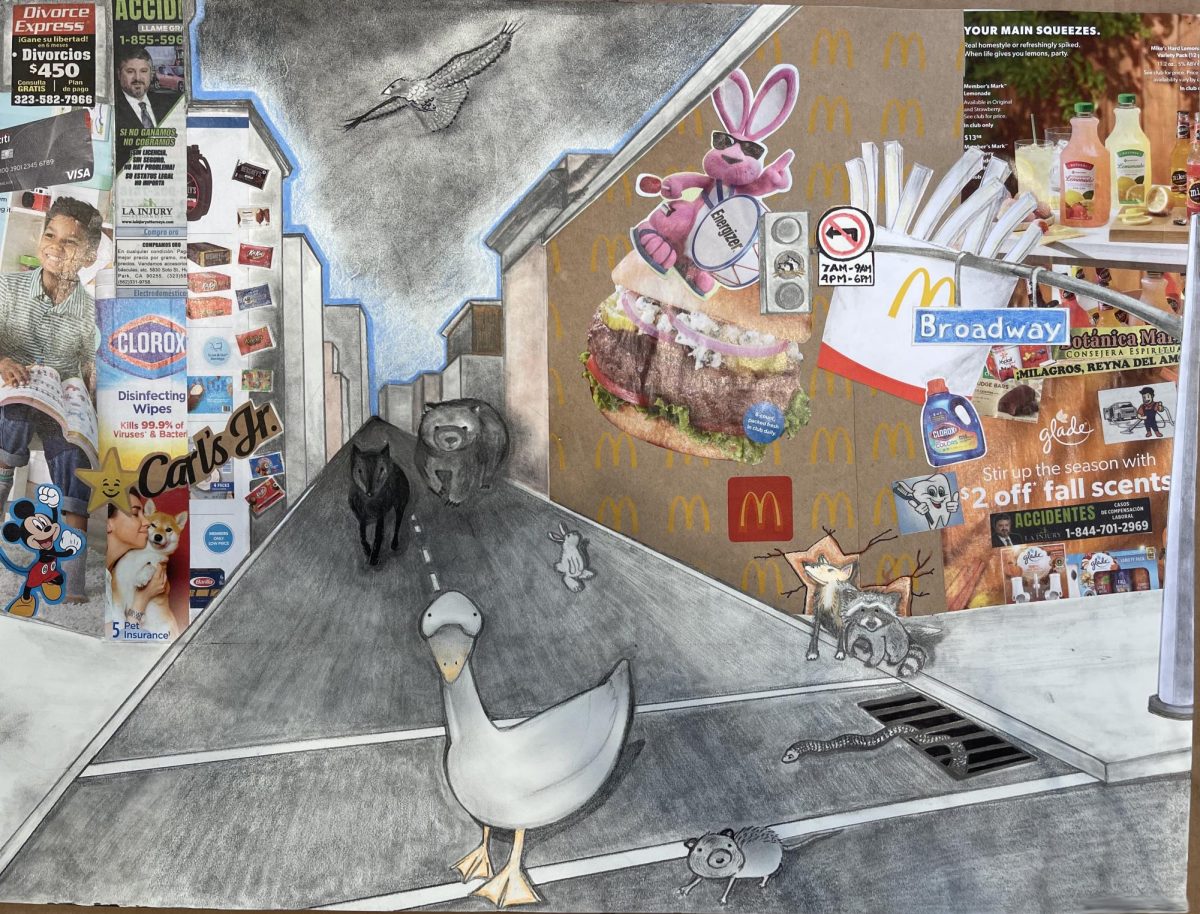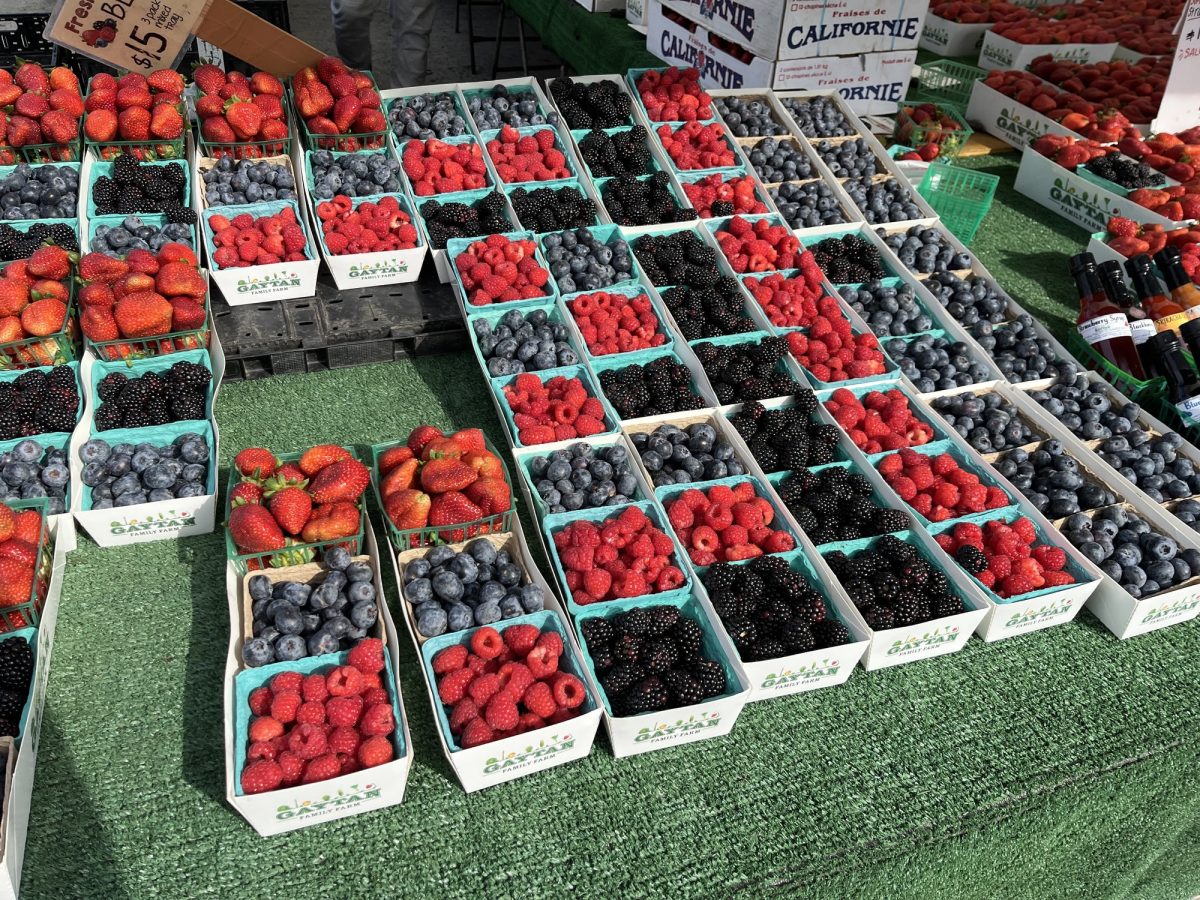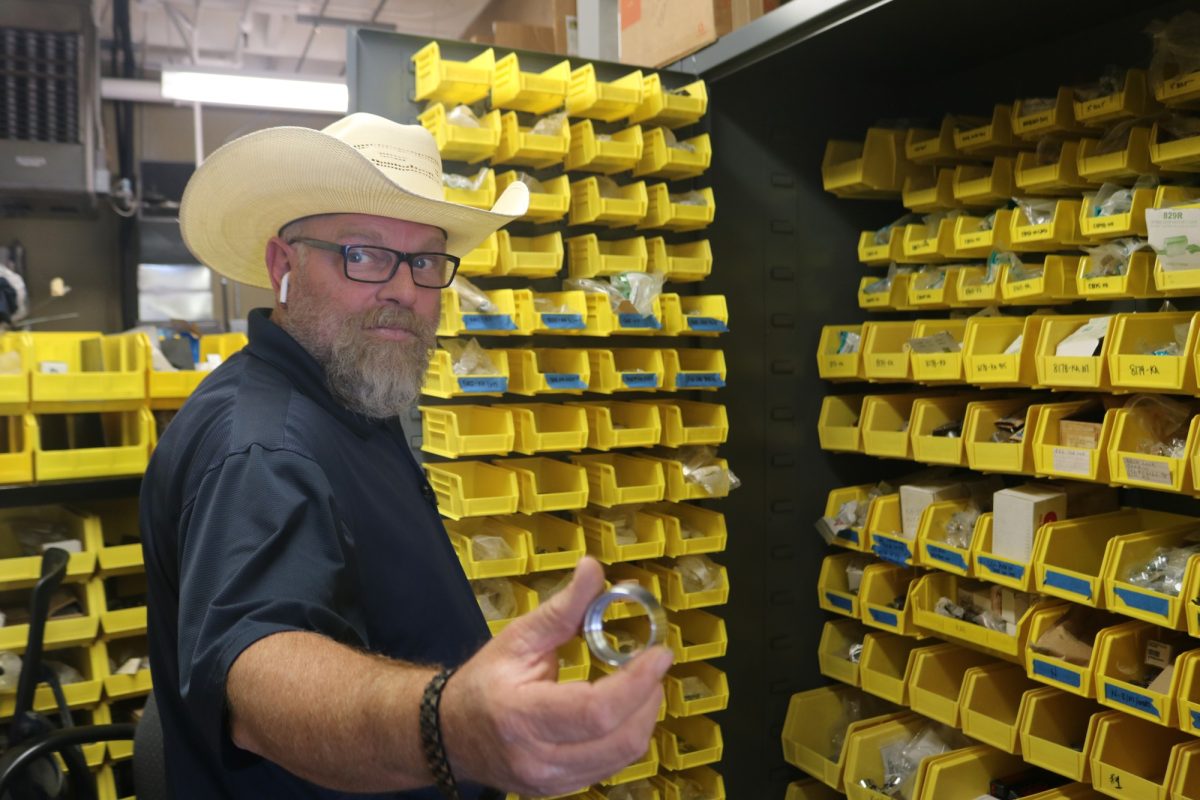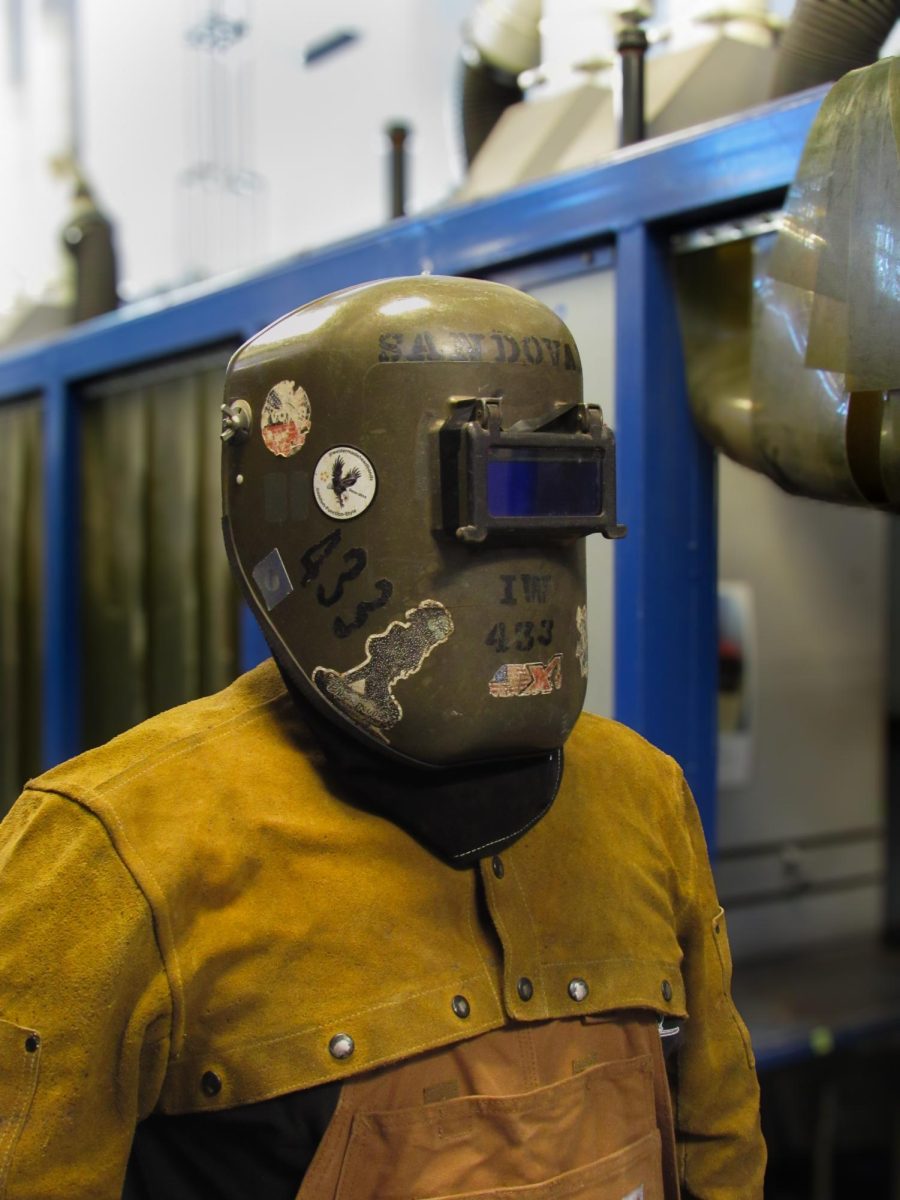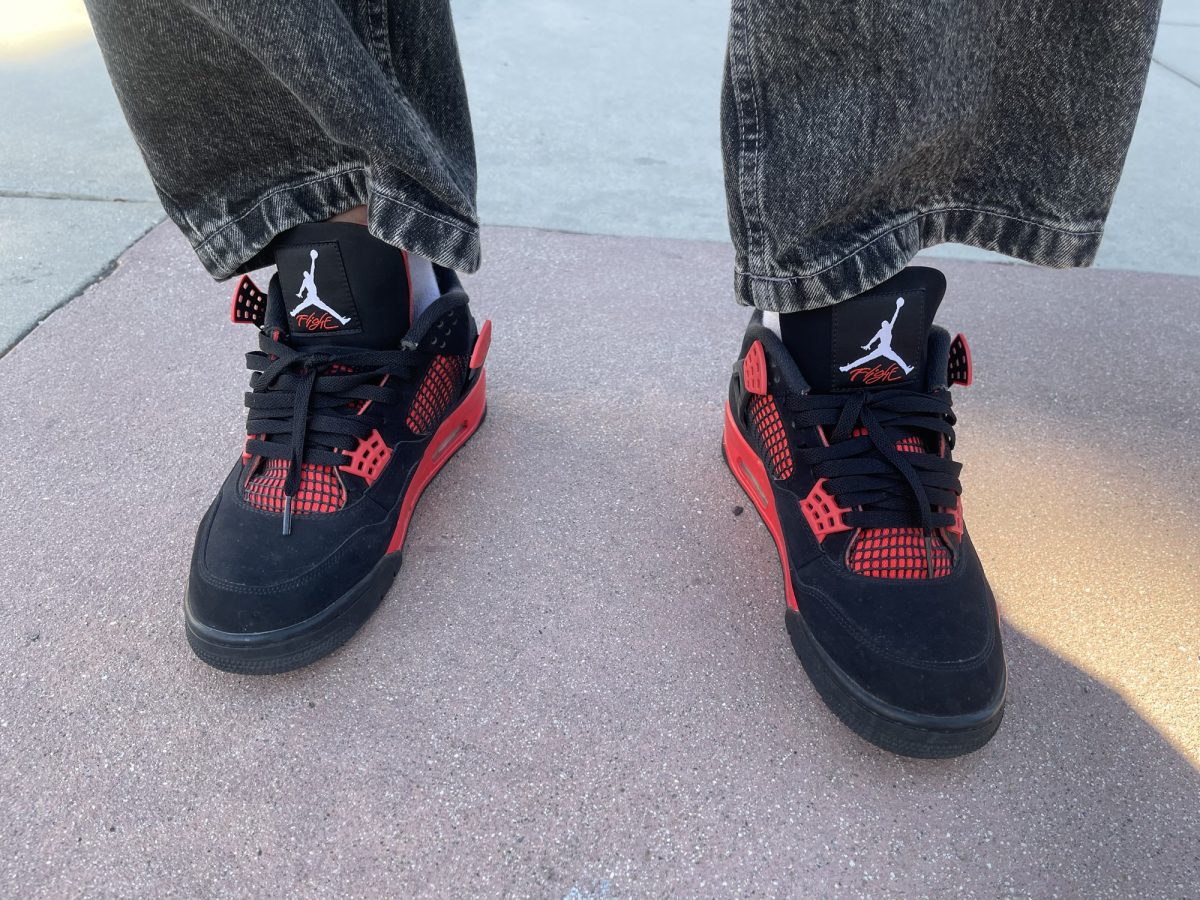Late evening commuters turn their heads as they cross Crenshaw Boulevard and Marine Avenue in Gardena.
Along the trafficked street, string lights hang from food stands, and flashing digital letters advertise “Tacos Al Pastor.”
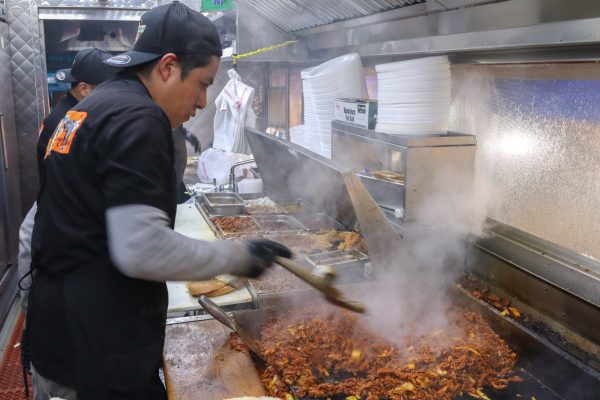
They illuminate the crowds of families and people in line to purchase one of Crenshaw’s delicacies.
“Customers discover us when they see the Salvadoran flag. We clean our area and make it comfortable for customers to enjoy our food,” says Vasni Serran, owner of a pupusa stand on Crenshaw.
Each stand hoists flags from which their food and workers originate. Owners and workers daily unload tables, tents, umbrellas, carts, flags, and sound systems from their cars.
A Latin-American curbside food court unfolds.
Given that Los Angeles has one of the largest Latino populations in the country, it is not surprising that many street classics are of Latin American origin.
Los Angeles’ food vendor cuisine has long been vital to the city’s culture.
People from all over the world find themselves in the city of dreams and later set up curbside enterprises.
From sizzling tacos and elote to pupusas and mouth-watering fruit carts, street vendors deliver an array of flavors that directly represent LA’s multicultural identity.
Customers are attracted by their national representation, the scent of familiar home-cooked food, and the sounds of nortena and reggaeton music.
Strategically located at the intersection of Crenshaw Boulevard and Marine Avenue, two of the busiest South Bay roads, these food stands have become a place of gathering and enjoyment in Gardena.
However, many of these businesses operate covertly without permits.
In Gardena, street food vendors must obtain several permits to operate legally within the city limits. These permits include a business license from the city government, a health permit from the Los Angeles County Department of Public Health, and a permit from the city’s Department of Public Works to use public sidewalks or streets.
Additionally, vendors need specific permits depending on the type of food they sell, such as a permit for selling alcoholic beverages if they do.
Vendors are tactful in their stand placement because the border dividing the city of Gardena is a “restricted area” that requires all of these permits, and Los Angeles County, which is exempt from specified permits, runs down the middle of Crenshaw Boulevard.
To the east of the road in Gardena, subject to local authority’s frequent visits and questions. No stand is set up on that side of the street.
Los Angeles County is to the west. Vendors say police cars rarely drive down Marine Avenue.
A local favorite is the pupusa stand. The only problem is that pupusas aren’t listed in the LA County food vendor permit application.
Serrano says she and her sister worked at a food counter in El Salvador before moving to Los Angeles in 2017.
They kept service and fast food jobs before being laid off during the pandemic.
“We’re single mothers. We didn’t know what to do,” Serrano said in Spanish.
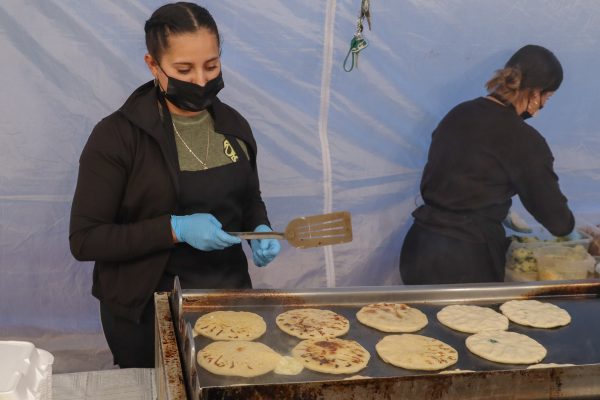
She laughs and shrugs. “We figured we knew how to make food,” she said.
She sits up straight in her seat at the foldable table with a red and white checkered tablecloth on the sidewalk next to her stand as Serrano recalls their first night selling.
“It was raining and we sold only ten pupusas,” Serrano said.
They kept coming back, and three years later, they sell about 500 pupusas per night at $2.50 a pop,” she said.
Serrano and her employees make everything by hand. The giant tub of curtido topping, salsa, and three gallons of horchata are made in their homes in downtown LA and transported to the stand every day.
Karen Ampario works as one of the stand’s pupusa makers daily. She lives in Inglewood with her 14-year-old son and 13-year-old daughter, with whom she migrated from El Salvador.
After she lost her job at a packing store, a mutual friend connected her with Serrano.
Ampario has been working at the stand for over a year. “I feel closer to home making pupusas,” she said.
Her son, Oscar Ampario, was only 6 when they arrived in America. Still, his mother says he learned that one must work at a young age in El Salvador. He asked Ampario if he could get a part-time job and upon asking Serrano if her son could contribute to the stand, he began working there too.
He takes the orders and manages the horchata and condiment station.
“It’s been good for him. And he notices all the work it takes to make money,” Ampario said.
Long orange chords are next to her feet, connecting from the pupusa stove to the karate studio behind her. Serrano pays the studio a weekly fee to contribute to the electricity cost.
Serrano continues to pursue the needed permits by submitting appeals to both LA County and the city of Gardena.
“We’re going to be here as long as we can. We work hard, and customers like our food and service,” Serrano said.
Their neighboring stand, Sweet Moments, has the luxury of an indoor vicinity as they own the property that connects to Crenshaw Boulevard.
It’s a small room with checkered tile. Two foldable tables are set up to the right and the left is a grill, deep frier, and an array of ingredients displayed in mason jars.
Melany Carlota, 18, is the owner and an El Camino College student currently fulfilling her general education requirements.
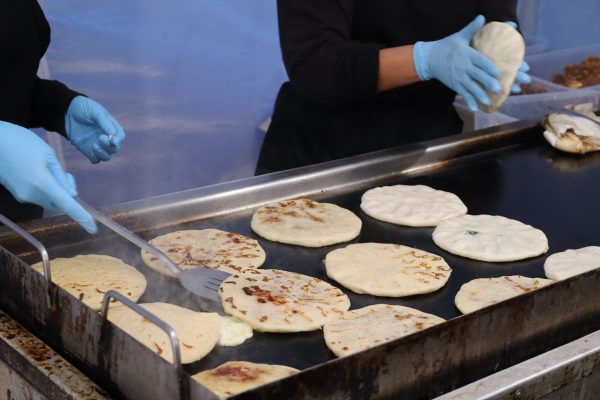
Sweet Moments sells crepes, mini pancakes, and Guatemalan classics such as bacon-wrapped hot dogs and rellenitos.
Patrons are attracted to her stand by the blue and white Guatemalan flag set up on the sidewalk but also by Carlota’s welcoming personality.
She distributes free samples to people waiting in line at other stands and gleefully explains that rellenitos are plantains stuffed with black beans and topped with cacoa powder.
Carlota and her mother migrated from Guatemala in 2019.
She attributes Sweet Moment’s success to her mother’s sacrifices and valor.
“She navigated us across all of Mexico on her own. They stole our money along the way. They tried to intimidate us, but she got us here safely,” Carlota said.
Sweet Moments started as a table on the sidewalk.
Serrano saved to buy the local they operate out of, acquired a food vendor’s permit, and is in the process of getting the permits needed for an indoor establishment, such as a sanitation and refrigeration assessment.
David and Erica Calderon sit at a table to the right, enjoying Guatemalan hot dogs while their toddler son has a plate of dino nuggets. They are regular customers who visit Sweet Moments at least once a week.
Guatemalan immigrants themselves say Carlota’s charisma and food connect them to Guatemala.
“She prepares food in our style…no other place does it like this,” David Calderon said.
Carlota says she’s never been questioned by inspectors or local authorities.
“I’m prepared for that, and I’m grateful I speak English, but I know that’s not the case for everyone,” she said.
Multiple vendors on Crenshaw Boulevard say they’ve never experienced inspection themselves, but those who receive frequent inspections are taco trucks.
Vendors say they’ve witnessed authorities throw out all the contents of neighboring taco trucks, including their weekly supply.
Menea Murillo, a food truck manager at Chiapas Tacos, confirms this does occur.
“Luckily, we have all our permits, but we never know when they’re going to inspect, so everything always has to be perfect,” Menea said.
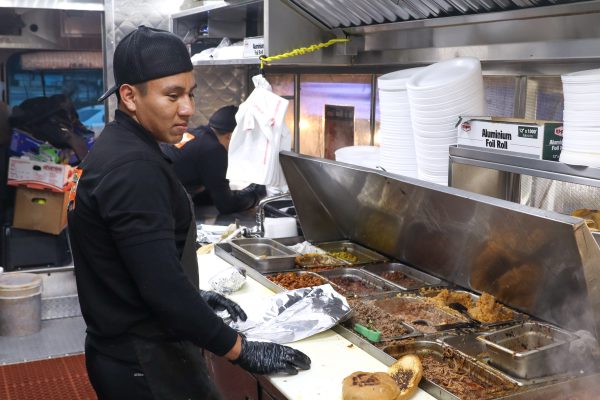
Chiapas is beloved in the Gardena community.
A long line forms nightly next to the bright orange truck with graphics of all the food they sell.
The menu includes items under $16, including birria, burritos, quesatacos, asada fries and more.
“We make the tortillas from scratch with every order,” Manea said as she pointed to the tortilla press.
Inside the truck, seven men in all black work as line cooks.
They laugh and sing to the Spanish music emitting from a speaker in the corner of the truck.
The music can be heard from outside the truck, where customers are packing their condiments and salsas from the steel bar hinged onto the side of the truck.
“We’re next to the loud car wash and on a busy street, but people know the orange truck is here. We’re happy to serve and see families laughing and eating at our tables outside,” Menea said.
Along the 7-Eleven car wash on the intersection, there is a much smaller stand selling a classic Mexican dessert.
The advertisement simply reads “CHURROS” and draws drivers to make a sharp turn into the 7-Eleven parking lot.
Ernesto Martinez has been at the intersection for two years and has been at the stand, Churros El Morrita, every day.
Hailing from the Sierra Mixe district of Oaxaca, Martinez says it’s not uncommon to have food stands and make churros daily where he’s from.
He deep fries the churros in a giant boiling pot attached to the cart and his partner, Fabiola Bautista, coats them in sugar.
Martinez explains that his nephew came up with the idea of having a churro stand.
It’s a family business that started with a churro cart in Downey. Today, they have seven stands throughout Los Angeles, each manned by different family members.
The cart at the intersection is the most successful one.
“We are completely dependent on this. We don’t have other jobs,” Martinez said. “It’s hard, but we’re here, rain or shine.”
Martinez shares that Churros El Morrita has acquired all the necessary permits, but it wasn’t always that way.
“It took a long time to find a safe location for every cart,” Martinez said.
Despite lacking formal permits, some food stands have sustained their position on the intersection.
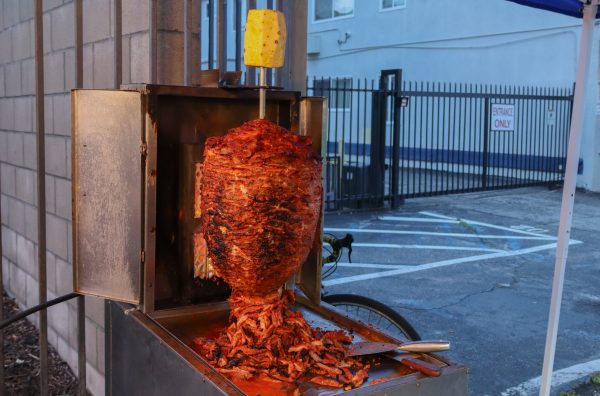
Beyond providing delicious food, the vendors on Crenshaw Boulevard have created a hub of community activity where the neighborhood gathers to enjoy affordable meals.
Whether it’s one of the several food trucks lined up or the bustling making of handmade pupusas, street vendors infuse Gardena with an authenticity that reflects the city’s large immigrant population.
Food vending requires an extensive bureaucratic process that presents obstacles oftentimes out of the applicant’s control.
In the meantime, food vendors have families to feed and patrons who depend on their labor for cheap meals that connect them to their homelands.
“We are grateful firstly to God but also to the community that likes our Churros and allows us to keep coming back,” says Martinez.




